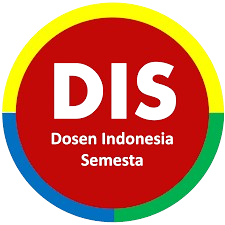SEMANTIC AND PRAGMATIC IMPAIRMENTS OF PERSON WITH ALZHEIMER’S DISEASE
DOI:
https://doi.org/10.36526/ln.v7i1.2618Keywords:
Language impairment, Semantic impairment, Pragmatic impairment, Alzheimer's diseaseAbstract
Understanding Alzheimer's disease affecting the communication ability can be done through investigating the language impairment of the sufferers. Therefore, this study aims to analyze the language impairments of person with Alzheimer’s disease as represented in The Father movie. It focused on the semantic and pragmatic impairment in the speech produced by Anthony as the main character with Alzheimer’s disease. Qualitative method is employed to get a deep understanding of the language impairments. The findings of this study indicated that the types of semantic impairments found are: errors in verbal fluency, difficulty in word comprehension, empty speech, word retrieval difficulty, semantic paraphasia, and naming difficulty. In addition, the types of pragmatic impairments found are repeating ideas, speaking too loudly, talking excessively at inappropriate times, and deviating from the topic. These findings have important implications for healthcare professionals and caregivers who work with people with Alzheimer's disease. By understanding the specific language impairments experienced by people with this condition, they can develop effective communication strategies that take into account the person's individual needs and abilities. Furthermore, more people can help to support the sufferer of Alzheimer's disease and enhance their well-being and social connections.
References
Cass SP. (2017). Alzheimer's Disease and Exercise: A Literature Review. Current Sports Medicine Reports, 16(1):19-22. https://doi.org/10.1249/JSR.0000000000000332
Ferris, S. H., & Farlow, M. (2013). Language impairment in Alzheimer's disease and benefits of acetylcholinesterase inhibitors. Clinical interventions in aging, 8, 1007–1014. https://doi.org/10.2147/CIA.S39959
Fraser, Kathleen C., Meltzer, Jed A., and Rudzicz, Frank. (2016). Linguistic Features Identify Alzheimer’s Disease in Narrative Speech. Journal of Alzheimer’s Disease, 49, 407 – 422.
Hasanah, Ilmiatul. (2020). Speech Abnormality of the Schizophrenic Character in Middle School Movie. [Undergraduate Thesis, UIN Maulana Malik Ibrahim Malang]. E-Theses UIN Malang
Indah, Rohmani Nur. (2017). Gangguan Berbahasa: Kajian Pengantar. Malang: UIN-Maliki Press.
Kempler, D. (1991). Language Changes in Dementia of the Alzheimer Type. In R. Lubinski(Ed.), Dementia and communication (pp. 98–113). Toronto: Decker.
Lindsay, H., Tröger, J., König, A. (2021). Language Impairment in Alzheimer’s Disease – Robust and Explainable Evidence for AD-Related Deterioration of Spontaneous Speech Trough Multilingual Machine Learning. Frontiers in Aging Neuroscience, 13:642033.
McDowd J., Hoffman L., Rozek E., Lyons K. E., Pahwa R., Burns J., Kemper S. (2011). Understanding verbal fluency in healthy aging, Alzheimer's disease, and Parkinson's disease. Neuropsychology, 25(2), 210-225
M. Montembeault, S.M. Brambati, S. Joubert, M. Boukadi, M. Chapleau, R.Jr. Laforce, M.A. Wilson, J. Macoir, I. Rouleau. (2016). Naming Unique Entities in the Semantic Variant of Primary Progressive Aphasia and Alzheimer’s Disease: Towards of a Better Understanding of the Semantic Impairment. Neuropsychologia, 2017;29: 11-20. http://dx.doi.org/10.1016/j.neuropsychologia.2016.12.009
Nurunnisa’i, K. (2015). Code-Switching Performed by Teacher and Students in Teaching Learning at Jawahirul Hikmah Senior High School Tulungagung. [Undergraduate Thesis, UIN Sayyid Ali Rahmatullah Tulungagung] Repository UIN SATU Tulungagung.
Sajjadi, S. A., Patterson, K., Tomek, M., Nestor, P. J. (2012). Abnormalities of Connected Speech in Semantic Dementia vs Alzheimer’s Disease. Aphasilogy, 26, 847 – 866
Salehi, M., Reisi, M., Ghasisin, N. (2017). Lexical Retrieval or Semantic Knowledge? Which One Causes Naming Errors in Patients with Mild and Moderate Alzheimer’s Disease?. Dementia and Geriatric Cognitive Disorders Extra, 2017;7: 419-429. https://doi.org/10.1159/000484137
Savundranayagam MY, Hummert ML, Montgomery RJ. (2005). Investigating the Effects of CommunicationProblems on CaregiverBurden. Journal of Gerontology series B: Psychoogical Sciences and Social Sciences, 60(1):S48–S55
Silagi, M. L., Bertolucci, P. H. F., Ortiz, K. Z. (2015). Naming Ability in Patients with Mild to Moderate Alzheimer’s Disease: What Changes Occur with the Evolution of the Disease?. Clinical Sciences, 70(6), 423 – 428.
Slegers, A., Filiou, R., Montembeault, M., Brambati, S. M. (2018). Connected Speech Features from Picture Description in Alzheimer’s Disease: A Systematic Review. Journal of Alzheimer's disease, 65, 519 – 542.
Tang-Wai DF, Graham NL. (2008). Assessment of Language Function in Dementia. Geriatric Aging; 11:103–110.
Tennessee Department of Education. (2018). Speech or Language Impairment Evaluation Guidance. TN Department Education. https://www.tn.gov/content/dam/tn/education/special- education/eligibility/se_speech_or_language_impairment_evaluation_guidance.pdf
Verma M., Howard R. J. (2012). Semantic memory and language dysfunction in early Alzheimer's disease: a review. International Journal of Geriatric Psychiatry, 12, 1209-1217
Wicaksono, A.A, (2017). A Psycholinguistic Analysis of Language Impaiment of an Individual with Alzheimer’s Disease in Still Alice the Movie. [Undergraduate Thesis, Universitas Negeri Yogyakarta]. FBS UNY Library.
Downloads
Published
How to Cite
Issue
Section
License
This work is licensed under a Creative Commons Attribution-ShareAlike 4.0 International License.


















